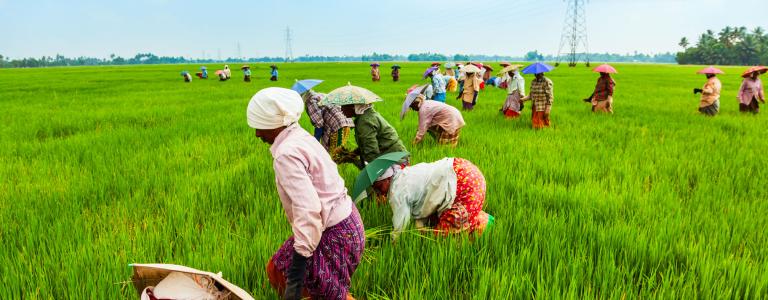Food and Agriculture
Making agriculture and food systems more equitable, resilient, and sustainable is key to addressing many of the world’s most pressing sustainable development challenges—from hunger and poverty to climate change and biodiversity loss.
Agriculture and food systems are key to sustainable development. They feed us and provide livelihoods for a significant share of the world’s population. We need to ensure they can continue to sustain future generations—without harming the natural environment upon which they depend.
IISD works with policy-makers and practitioners to help establish laws, policies, and institutions that ensure agriculture and food systems advance sustainable development.
We support the establishment of legal and policy frameworks that encourage responsible private sector investment in agriculture and food systems, particularly in low-income developing countries. We support the negotiation of multilateral trade rules for more equitable and sustainable international trade in food and agricultural products. And we seek to inform better use of public policies and spending—including official development assistance and domestic subsidies—to incentivize sustainable agriculture, tackle food insecurity, and promote sustainable food systems.
To achieve these objectives, we work with a range of stakeholders in developing countries and regions, and at the international level. We provide advice and training to governments and regional bodies; we produce practical tools and guidance for governments, investors, and civil society; and we bring these stakeholders together to engage in inclusive dialogue and peer-to-peer learning.
This work is complemented by in-depth research conducted in collaboration with leading international organizations and research institutes. Together, we produce and disseminate evidence and recommendations to improve knowledge and inspire and inform action. This feeds into important international processes to develop rules, norms, principles, and targets aimed at achieving equitable and sustainable food systems for present and future generations.
Main Areas of Work
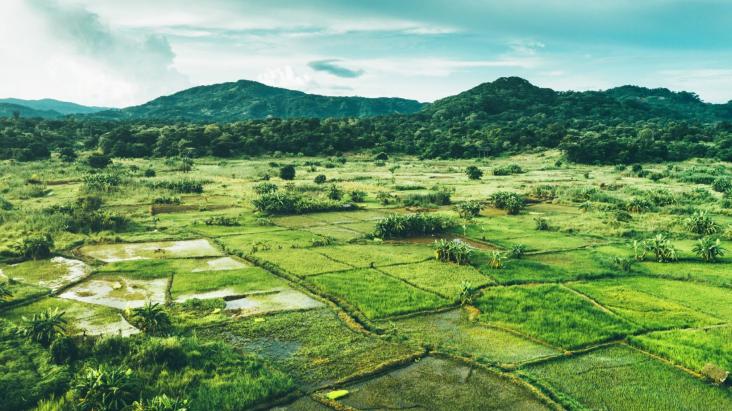
Responsible Investment in Agriculture
IISD provides evidence, tools, training, and advice to promote responsible investments that drive the transition to more resilient and sustainable food systems.

Fair and Sustainable Trade in Food and Agriculture
IISD conducts research and facilitates dialogue to help bring about trade rules that promote equitable and sustainable international trade in food and agricultural products.
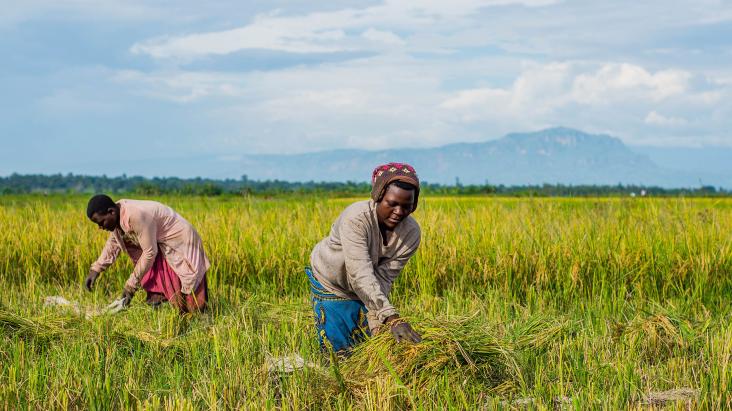
Food Systems Transformation
IISD helps governments design policies that incentivize sustainable farming practices and promote improved food security and nutrition.
Featured Resources
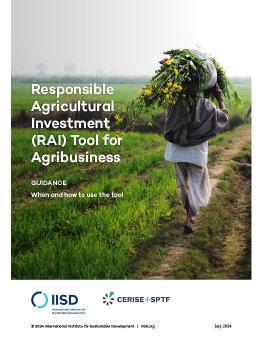
The Responsible Agricultural Investment Tool for Agribusiness
This tool aims to support agribusinesses in aligning their practices, procedures, and operations with principles of responsible investment in agriculture and food systems.
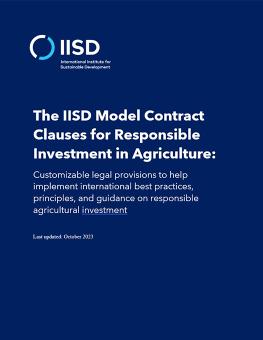
The IISD Model Contract Clauses for Responsible Investment in Agriculture
Customizable legal provisions to help implement international best practices, principles, and guidance on responsible agricultural investment.
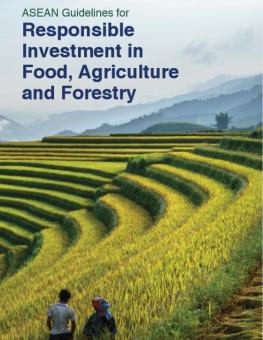
ASEAN Guidelines for Responsible Investment in Food, Agriculture and Forestry
These guidelines, adopted by ASEAN Ministers on Agriculture and Forestry, focus on promoting responsible investment in the region's food, agriculture and forestry sectors.
Publications and Events
Agricultural Subsidies: A case for Uganda
Jane Nalunga and Jonathan Lubega examine Uganda's agricultural subsidies, offering recommendations for redesigning them to foster sustainability.
Agricultural Subsidies in India: A critical balancing act
Ranja Sengupta explores the socio-economic impact of agricultural subsidies in India and underscores the need for effective policy adjustments.
Challenges to Fostering Low-Carbon Agriculture Through Public Policies and Support in Brazil
Leila Harfuch, Rodrigo C. A. Lima, and Gustavo Dantas Lobo examine how low-carbon agriculture policies can balance production with conservation for more sustainable agriculture in Brazil.
IISD Trade and Sustainability Review, December 2024
This edition of the IISD Trade and Sustainability Review presents four expert perspectives on how agricultural support and subsidies can promote sustainability in developing and least developed countries.
Experts

Nathalie Bernasconi-Osterwalder
Vice-President, Global Strategies and Managing Director, Europe

Cristina Larrea
Director, Agriculture, Food and Sustainability Initiatives

Sean Woolfrey
Lead, Sustainable Agriculture and Food Systems

Maria Barral
Communications Officer

Steffany Bermúdez
Policy Advisor I

Livia Bizikova
Lead II, Monitoring and Governance, Tracking Progress

Facundo Calvo
Policy Analyst, Trade and Agriculture

Sara Elder
Senior Policy Advisor, Standards Workstream

Erika Luna
Policy Analyst

Nyaguthii Maina
Associate

Claire McConnell
Policy Advisor

Sally Millett
Communications Manager
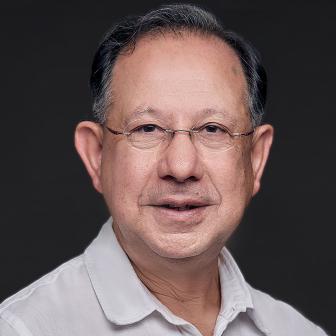
Hafiz Mirza
Senior Associate, Responsible Agricultural Investment Research

Florencia Sarmiento
Policy Advisor

Ronald Tundang
Associate

Rupal Verma
Policy Analyst II
Latest
You might also be interested in
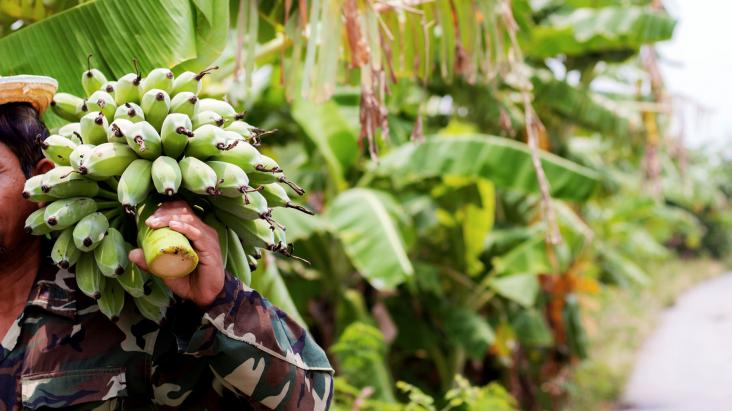
Standards and Value Chains
If designed and used appropriately, sustainability standards can help advance more sustainable production, consumption, and trade.

Investment Law & Policy
How can we ensure developing economies attract international investment that promotes sustainable development?

Trade
IISD’s work shapes trade policy so it advances sustainable, low-carbon development.
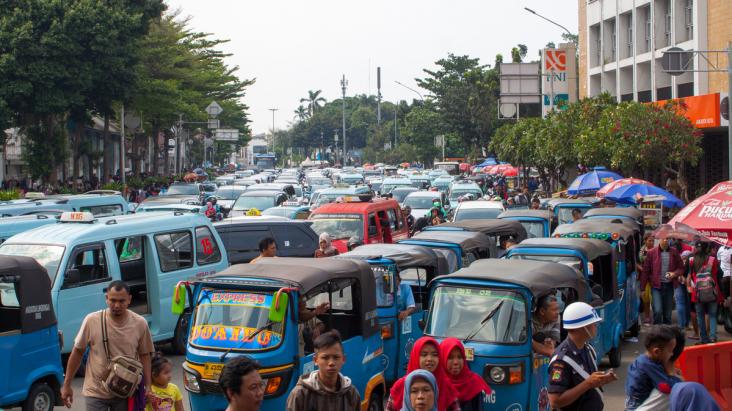
Subsidies
Fossil fuel subsidies make little sense in a world shifting to low-carbon sources of energy to tackle climate change.
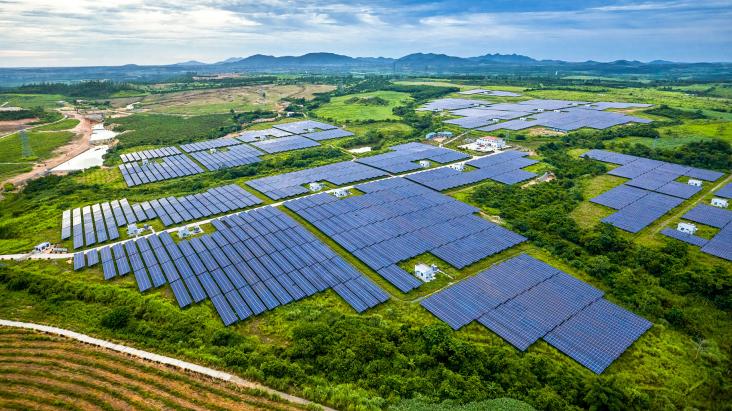
Energy
We work to identify wasteful practices, encourage new thinking, engage civil society, and support policy reform.
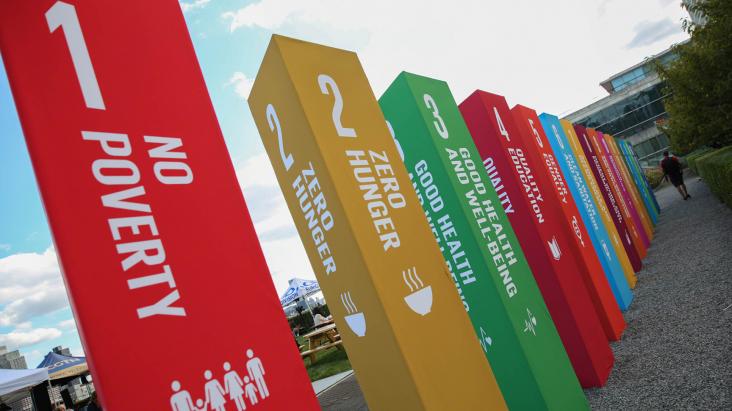
Sustainable Development Goals
This global agenda aims to end poverty, protect the planet, and ensure all people enjoy peace and prosperity by 2030.
